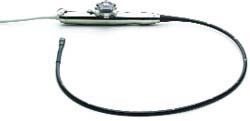Transoesophageal echocardiography
23 May 2021 / 4:27 pm
What is it ?
A transoesophageal echocardiogram is an ultrasound investigation of the heart. A small probe is passed down the oesophagus (gullet) behind the heart. Sound waves are reflected from structures in the heart generating pictures. This gives very clear view of the way in which the heart valves work and can be helpful to exclude small holes in the heart.

How is it performed ?
You will be asked not to have anything to eat or drink for at least 6 hours before the test. You can still take any necessary medications that morning with a small sip of water. You will need to remove dentures. A small intravenous line is inserted into one of your arm veins. Local anaesthetic spray is used to reduce the sensation at the back of your throat. A sedative can then be given if required to make the procedure more comfortable. The flexible probe is then passed down the back of the mouth into the gullet to acquire the ultrasound pictures.
How long does it take ?
The investigation takes approximately 10-15 minutes. You will need to be observed for a couple of hours whilst the sedation wears off.
Are there any risks ?
You should not eat or drink for at least two hours after the test. Some patients notice a sore throat for a short while but more serious complications such as damage to the oesophagus (gullet) and inhalation of stomach contents (aspiration) are very uncommon (less than 1 in 100). After the sedation you may feel drowsy for several hours and for that reason you should not drive for 24 hours. Arrange for someone to be at home in the house with you that evening.
What happens next ?
You will be discharged home later in the day. The recording will be analysed and a report generated, usually within seven days.